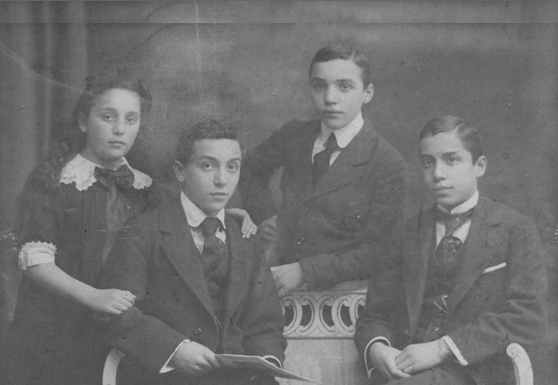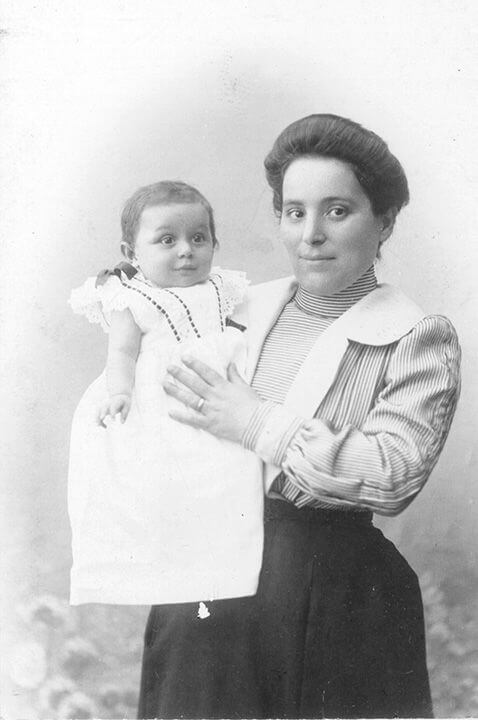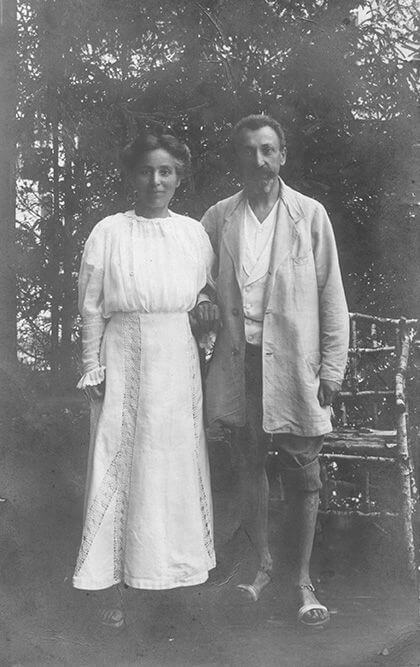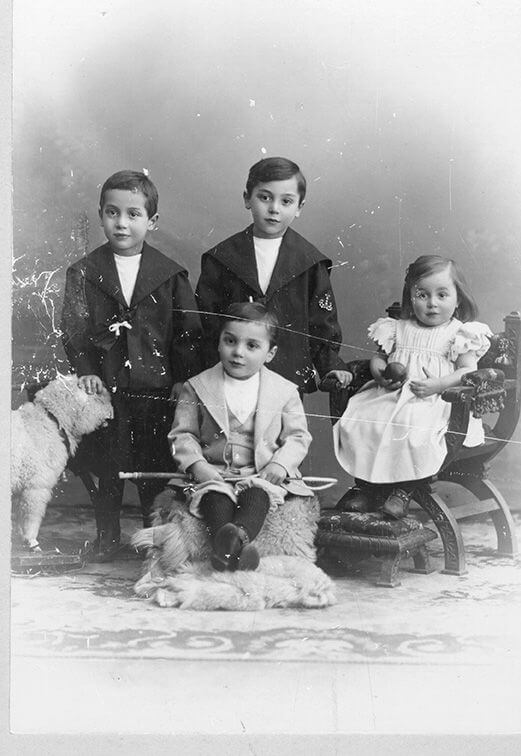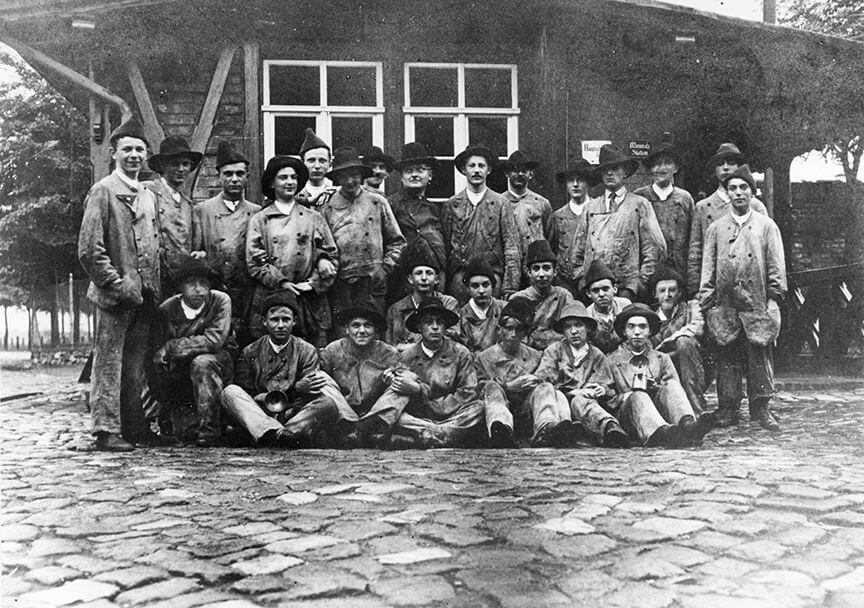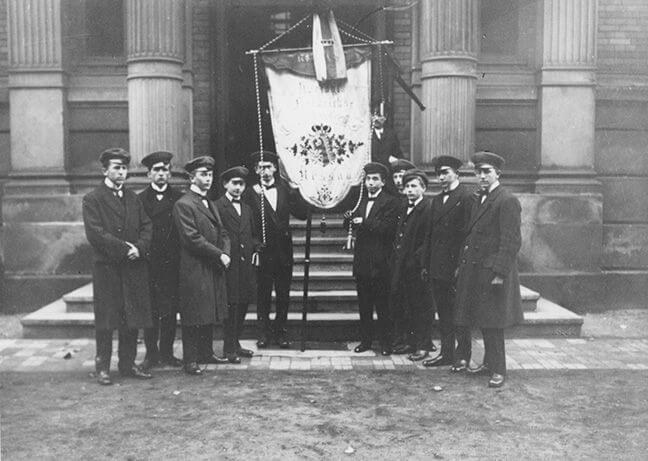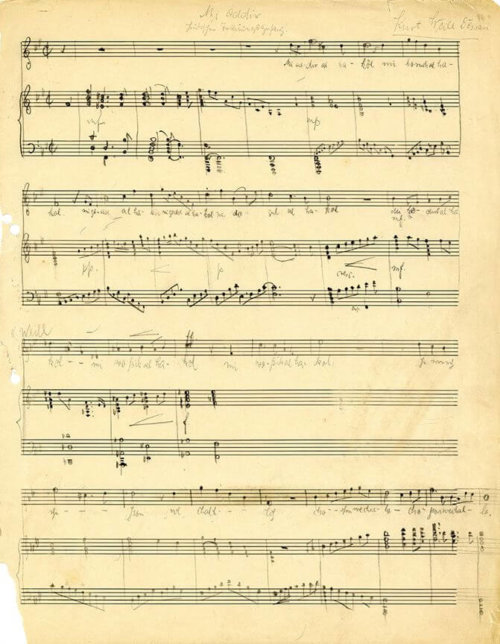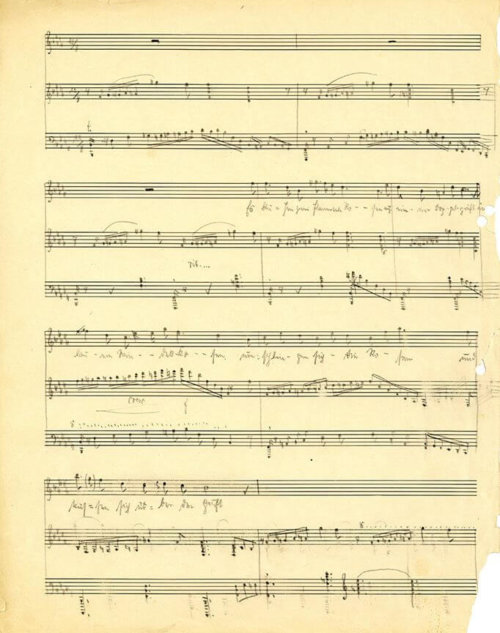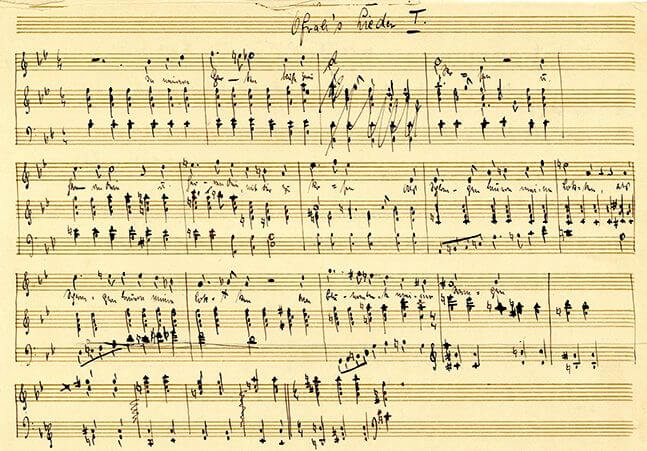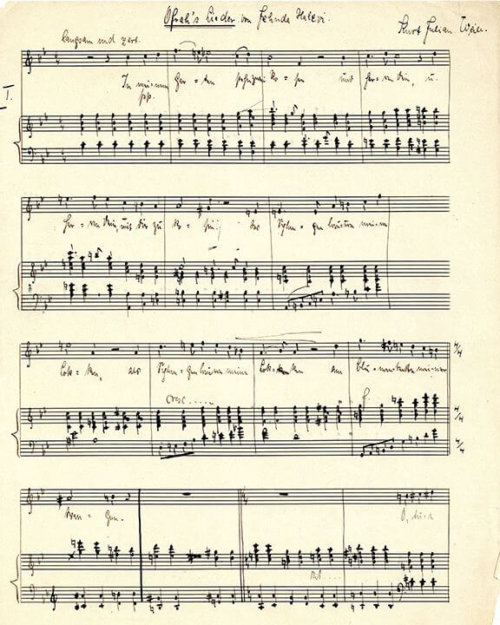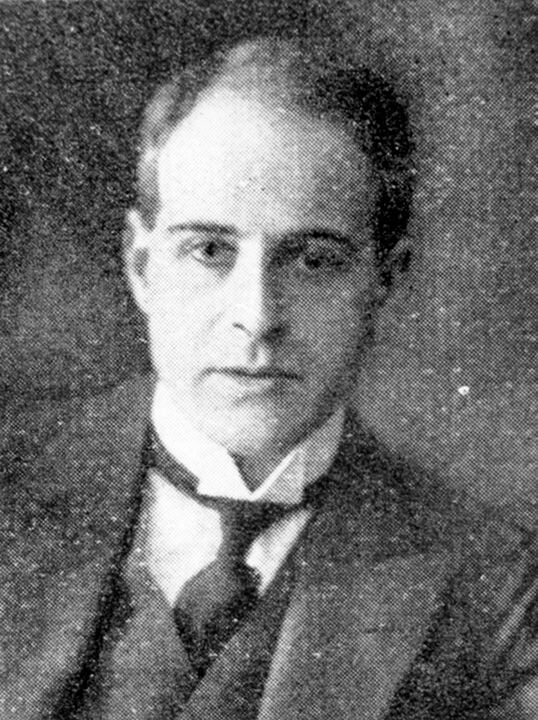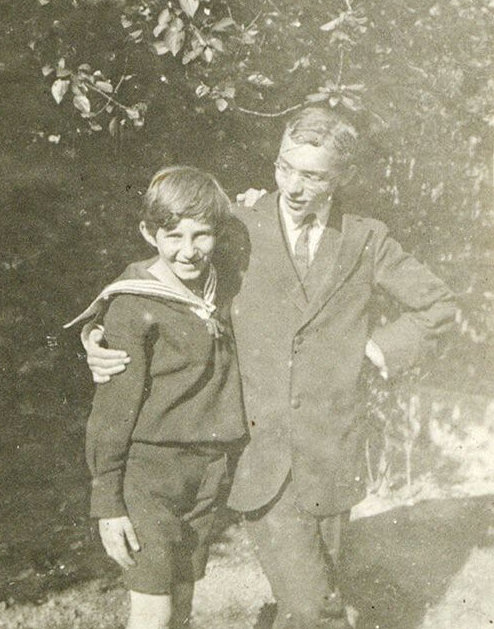January
Accompanies a fellow Kundschafter in a song titled “Für uns,” in what is probably his first formal public performance. During 1915, Kurt begins studying with the assistant conductor at the Dessau Ducal Theater, Albert Bing, who prepares him for advanced music study over the next three years, and furthers Kurt’s interest in the theater.
Bing takes over Kurt's piano lessons and does much more: he introduces Kurt to much of the operatic repertoire and begins his first serious instruction in music theory, score reading, and composition. A former pupil of composer Hans Pfitzner, Bing becomes an important influence; he and his wife Edith do much to broaden Kurt's cultural horizons. In effect, Kurt becomes part of the Bing family.
